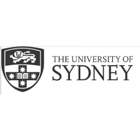Bachelor of Economics and Bachelor of Arts
Bachelor of Economics and Bachelor of Arts
This combined degree provides the freedom to select subject areas that reflect your interests and goals. Whether you’re interested in learning about economic theories, societal trends, or global issues, you’ll find the perfect blend of subjects to suit your ambitions. Who is it for? Ideal for people looking to pursue…
Categories
COURSE DESCRIPTION
This combined degree provides the freedom to select subject areas that reflect your interests and goals. Whether you’re interested in learning about economic theories, societal trends, or global issues, you’ll find the perfect blend of subjects to suit your ambitions.
Who is it for?
Ideal for people looking to pursue a career in finance, government or academia. This degree prepares you to thrive in today’s ever-evolving world. The combined degree allows you to create a personalised academic experience that sets you apart in today’s competitive job market.
Career paths
Our graduates can be found in a broad range of careers and roles, including:
Accountant
Banker
Business consultant
Business information systems analyst
Economic analyst
Economist
Financial manager
Human resources manager
Industrial relations specialist
Policy analyst/adviser
Researcher
You will complete a program in Economics which covers foundational studies in microeconomics, macroeconomics, and econometrics and includes your choice of one of the following embedded majors:
- Econometrics
- Economics
- Environmental, Agricultural and Resource Economics
- Financial Economics
Majors are a group of related subjects you’ll take to gain specialised knowledge in a specific area: American Studies; Ancient Greek; Ancient History; Anthropology; Arabic Language and Cultures (Advanced); Arabic Language and Cultures (Intermediate); Arabic Language and Cultures (Introductory); Archaeology; Art History; Asian Studies; Chinese Studies (Advanced); Chinese Studies (Intermediate); Chinese Studies (Introductory); Criminology; Cultural Studies; Digital Cultures; Education Studies; English; European Studies; Film Studies; French and Francophone Studies (Advanced); French and Francophone Studies (Intermediate); French and Francophone Studies (Introductory); Gender Studies; Germanic Studies (Advanced); Germanic Studies (Intermediate); Germanic Studies (Introductory); Hebrew (Modern) (Advanced); Hebrew (Modern) (Introductory); History; Indigenous Studies; Indonesian Studies (Advanced); Indonesian Studies (Intermediate); Indonesian Studies (Introductory); International Relations; International and Comparative Literary Studies; Italian Studies (Advanced); Italian Studies (Intermediate); Italian Studies (Introductory); Japanese Studies (Advanced); Japanese Studies (Introductory); Japanese Studies (Junior Intermediate); Japanese Studies (Senior Intermediate); Jewish Civilisation, Thought and Culture; Korean Studies (Advanced); Korean Studies (Heritage Speaker); Korean Studies (Intermediate); Korean Studies (Introductory); Latin; Modern Greek Studies (Advanced); Modern Greek Studies (Intermediate); Modern Greek Studies (Introductory); Music; Political Economy; Politics; Socio-legal Studies; Sociology; Spanish and Latin American Studies (Advanced); Spanish and Latin American Studies (Intermediate); Spanish and Latin American Studies (Introductory); Theatre and Performance Studies; Visual Arts; Neuroscience; Nutrition Science; Pharmacology; Physics; Physiology; Plant Production; Plant Science; Political Economy; Politics; Psychological Science; Socio-legal Studies; Sociology; Software Development (Science); Soil Science and Hydrology; Spanish and Latin American Studies (Advanced); Spanish and Latin American Studies (Intermediate); Spanish and Latin American Studies (Introductory); Statistics; Theatre and Performance Studies; Visual Arts.
EDUCATIONAL INSTITUTION
The Australian National University (ANU) is one of Australia’s premier universities and ranked amongst the best in the world. It was created by Federal Parliament in 1946 to drive the nation forward and advance Australia’s international standing through research and education of the highest quality. ANU is distinctive because of its national mission, international focus and impressive record in research and education for undergraduate and postgraduate students. Our leading researchers drive our educational programs and shape the ANU learning experience. Students at ANU enjoy excellent staff-student ratios and great employment prospects. They benefit from award-winning and challenging teaching, first-rate facilities and the collegial atmosphere of a residential campus.

